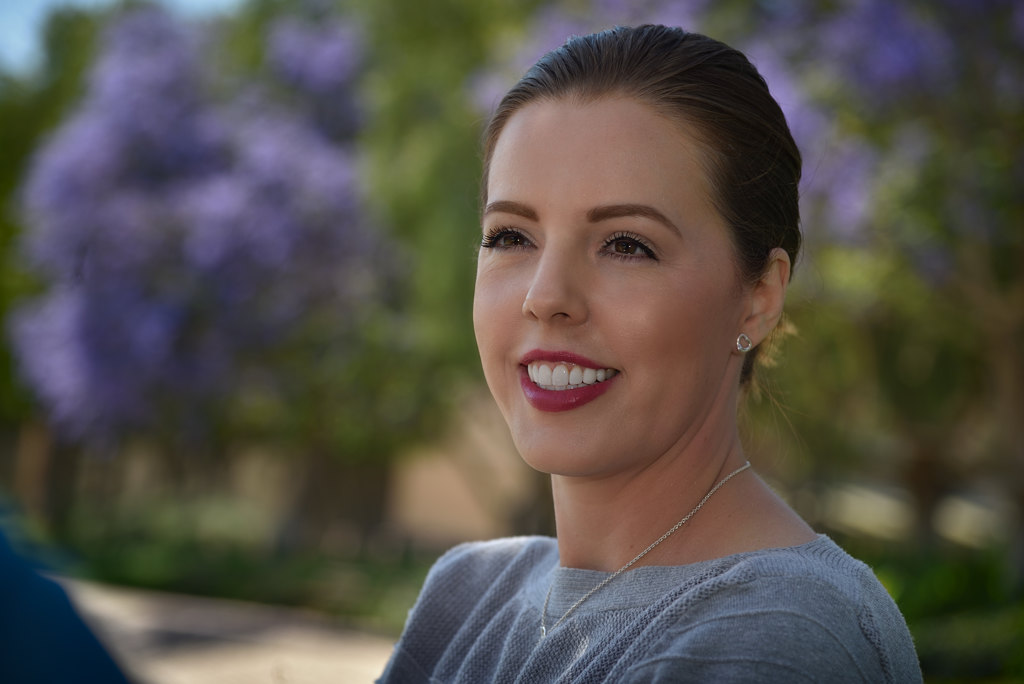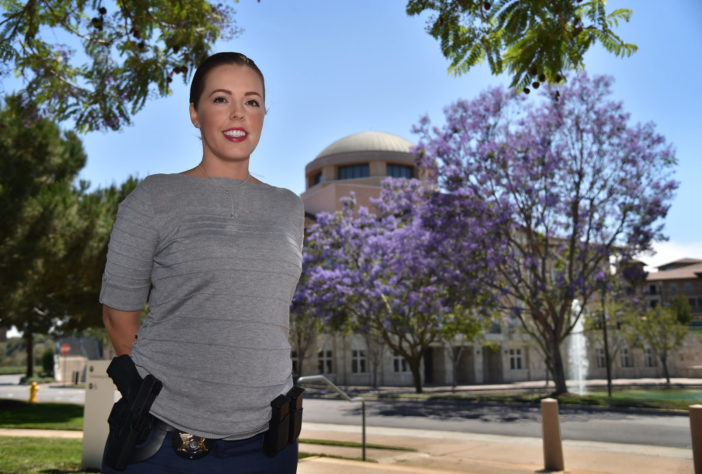He was used to living in cramped quarters, sharing a 400-square-foot apartment in West Hollywood with his mother.
A gun rack just inside the entryway made the living space even tighter.
These days, David Kenneth Smith is killing most of his hours in a space roughly ten-times smaller than that apartment:
A cell in state prison.
In a case that generated considerable media attention, Smith, 40, was sentenced June 1, 2018 to three years in prison — the maximum — on one count of making criminal threats.
On April 19, 2018, a jury convicted Smith for a series of four emails he sent late last year to a staff member at Soka University in Aliso Viejo, threatening violence.
One email included a link to a video Smith posted to YouTube that showed him lying in his bathtub with a firearm on his chest. In the video, Smith talks about his conflicts with Soka administration while he was attending the university a decade earlier.
In another email, Smith writes how he has nothing to lose and wants to put Soka University on the map.
Smith’s conviction and prison sentence were solid victories for law enforcement and the Orange County District Attorney’s Office. Smith had no prior criminal record.
Orange County Sheriff’s Department Investigator Sandy Hawkins, the case agent who worked with several OCSD colleagues on the investigation, said Smith posted upwards of 120 videos on YouTube, many of which detailed his sinister intentions.
“He seemed to get off on — those are his words — murder and mayhem,” Hawkins said in a recent interview on the grounds of Soka, a private university that sits on a bluff above Aliso and Wood Canyons Wilderness Park.
In one video, Smith praised Las Vegas mass-shooter Stephen Paddock. In others, he saluted the man who randomly shot three people to death at a Wal-Mart in Colorado, as well as the truck driver who fatally mowed down eight pedestrians in a downtown New York City terrorist attack.
For Hawkins, 35, the Smith case was the most high profile one she’s been assigned to since the six-year veteran of the OCSD was promoted to investigator in October 2016. Hawkins works in General Investigations for the City of Aliso Viejo, which contracts police services with the OCSD.
Hawkins began her career in law enforcement in 2003 at the Riverside County Sheriff’s Department, where she spent seven years working the jails.
After graduating from a police academy in San Diego, she was hired by the Brea PD in 2011. A short time later, she was offered a job at the OCSD after that agency won the contract to provide police services to Yorba Linda, forcing the Brea PD to lay off 23 officers (until then, Brea also had provided police services to Yorba Linda).
Sheriff Sandra Hutchens offered all 23 of those former Brea PD employees jobs. Many, like Hawkins, accepted.
When her sergeant assigned her to the Smith case, Hawkins acted quickly.
“I started looking into it, I read the report, and then I started looking into (the suspect), including his social media, and that’s when I saw his (YouTube) videos.
“To me,” Hawkins said, “he felt like somebody who was going to possibly carry out a threat.”
Soka employees were terrified.
“They were too scared to come to work,” Hawkins recalled. “So we wanted to get this case solved as soon as possible.”
Hawkins wrote multiple search warrants —- including for Smith’s apartment, car, phone, computer, medical records, and social media — that an on-call judge had to approve at 1 a.m. at home.

OCSD Investigator Sandy Hawkins said the Smith case was a true team effort.
Photo by Steven Georges/Behind the Badge OC
When OCSD deputies arrested Smith, they discovered that all nine firearms in his apartment were loaded.
“We felt like everybody was much safer once he was arrested,” said Hawkins, who was able to help get a bail enhancement to $1 million.
RAPIDLY ESCALATED
The first email Smith sent to the victim on Halloween was relatively innocuous, but the three that followed rapidly escalated into threats, said Senior Deputy District Attorney Brett Brian, who prosecuted Smith.
The most serious emails were sent Nov. 1, Brian said. An email that morning contained the link to the YouTube video of a shirtless Smith in the bathtub with the firearm on his chest, with a message that he would be visiting the university soon.
Around 3 p.m. on Nov. 1, Smith sent his final email about putting Soka on the map.
By early the next morning, on Nov. 2, Smith was in custody.
Judge John Conley allowed some of Smith’s videos to be shown to put the emails into context, Brian said.
Smith took the stand during the four-day trail, testifying that he was a journalist trying to provoke serious debate about gun violence by making the provocative videos.
He claimed he never was going to act on his threats.
Jurors didn’t buy it.
The key to Smith’s conviction was the emails, Brian said.
“They pretty much speak for themselves,” he said.
With good behavior, Smith could be out of prison at the end of 2019. He then will be placed on parole and banned from legally purchasing a firearm.
A restraining order that will forbid Smith from contacting the victim or visiting Soka University will remain in effect through 2023, Brian said.
“I think everybody did exactly what had to be done,” the prosecutor said of the case. “The victim reported the (threatening emails) immediately to campus security, which in turn notified the sheriff’s department,” he added.
“Deputies worked tirelessly, and their efforts quickly led to Smith’s arrest.”
Hawkins said the conviction and sentencing of Smith was satisfying.
Assisting her on the investigation were deputies from Southwest Investigations and OCSD’s San Clemente Police Services.
“It was a true team effort,” said Hawkins, who prior to becoming an investigator worked patrol in Yorba Linda, Mission Viejo and Aliso Viejo.
“When something like this happens,” Hawkins said, “everybody gets involved. Everybody helps.”
 Behind the Badge
Behind the Badge






